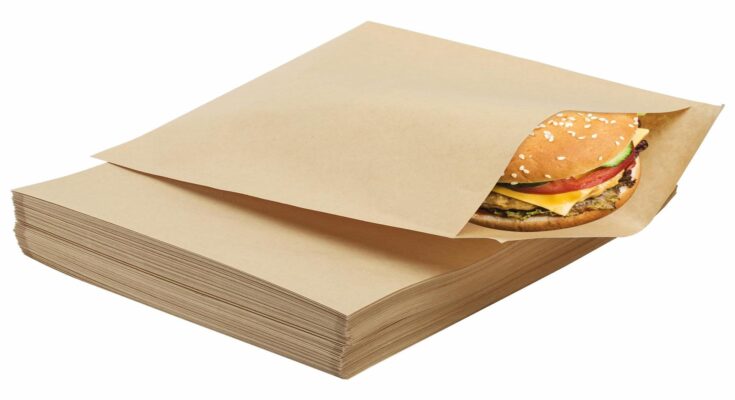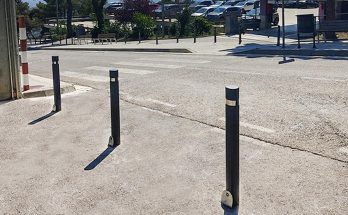In today’s culture, environmentally conscious consumers look for alternatives to plastic shopping bags and packaging for food items. Paper bags are an alternative that is often used. These options are better for the environment because they are biodegradable, flexible, and practical. This post on a blog will explore the development of alternatives to paper shopping bags for environmentally conscious consumers, including their merits, applications, and impacts on the natural environment.
The Environmental Conundrum of Plastic Bags
Grocery businesses and takeaway eateries have always used plastic bags. It is cheap, lightweight, and easy to carry. However, their ease is costly to the environment. Plastic bags degrade in the environment over hundreds of years. They pollute our seas, rivers, and landscapes as trash, endangering species.
Governments and companies worldwide are reducing plastic bag use due to its adverse effects. Many jurisdictions have banned or taxed single-use plastic bags, pushing consumers and companies to find alternatives. One such alternative that has gained popularity is the humble paper sandwich bags.
The Versatility of Paper Bags
Sustainable Packaging
Paper bags are versatile and sustainable. They use unbleached or recycled paper, decreasing raw material use. They’re ideal for eco-conscious buyers who wish to reduce their impact.
Biodegradable and Compostable
These bags decompose, unlike plastic ones. When properly disposed of, they break down into organic matter, replenishing soil nutrients without harming the environment. This trait fits the circular economy, which turns trash into resources.
Food-Safe
Paper sandwich bags are food-safe and excellent for lunches, snacks and takeaway. Grease-resistant bags keep food fresh and bags durable. This versatility makes them a popular choice not only for individuals but also for restaurants and cafes striving to offer sustainable packaging options to their customers.
Customisable
These are highly customisable, allowing businesses and individuals to add a personal touch. They can be printed with unique designs, logos, or branding, making them an excellent marketing tool for companies promoting eco-friendly initiatives.
The Applications of Paper Bags
Grocery Shopping
Paper bags outperform plastic shopping bags. They hold fruits, vegetables, and canned goods and are robust. Some grocery stores provide paper bags and reward customers who bring reusable ones.
Takeout and Delivery
The rise of food delivery services has led to an increase in the use of disposable packaging. These bags are a sustainable choice for restaurants and food delivery platforms. They reduce the environmental impact and enhance the dining experience by keeping food warm and fresh during transit.
School and Office Lunches
Paper sandwich bags are a convenient and eco-friendly solution for parents and individuals looking to pack lunches for school or work. They are easy to fill, seal, and transport. Plus, they can be decorated or labelled, making it simple to identify the contents of each bag.
Events and Parties
These are also gaining popularity as party favours and event giveaways. Whether it’s a wedding, birthday party, or corporate event, these bags can be customised to match the theme or message of the occasion. They serve as a practical and eco-conscious alternative to plastic gift bags.
The Positive Impact on the Environment
The shift towards paper bags and other eco-friendly alternatives significantly reduces plastic pollution. By choosing these bags over their plastic counterparts, consumers and businesses are collectively helping to:
Reduce Plastic Waste
Millions of tonnes of plastic garbage enter landfills and the environment annually. These bags reduce plastic waste by being biodegradable and compostable.
Protect Wildlife
Plastic bags severely threaten wildlife, as animals can ingest or become entangled. By using paper sandwich bags, we can help safeguard wildlife by eliminating the risks associated with plastic pollution.
Conserve Resources
Producing plastic bags requires significant amounts of fossil fuels and energy. In contrast, paper bags are typically made from renewable resources like trees, and their production has a lower carbon footprint. Choosing paper bags promotes resource conservation and reduces greenhouse gas emissions.
Conclusion
The rise of paper bags as eco-friendly alternatives for shopping and packaging is a positive step towards a more sustainable future. These versatile and customisable bags offer a range of benefits, from being biodegradable and compostable to serving as food-safe and decorative packaging. They find applications in grocery shopping, takeout and delivery, school and office lunches, and special events. Most importantly, their adoption helps reduce plastic waste, protect wildlife, and conserve valuable resources.
As consumers and companies become more environmentally conscious, paper bags and other eco-friendly options will continue to grow. We can help clean the earth by making conscientious decisions and supporting sustainable practices. Next time you pack a lunch or groceries, use a paper sandwich bag to help preserve our ecosystem for future generations.



